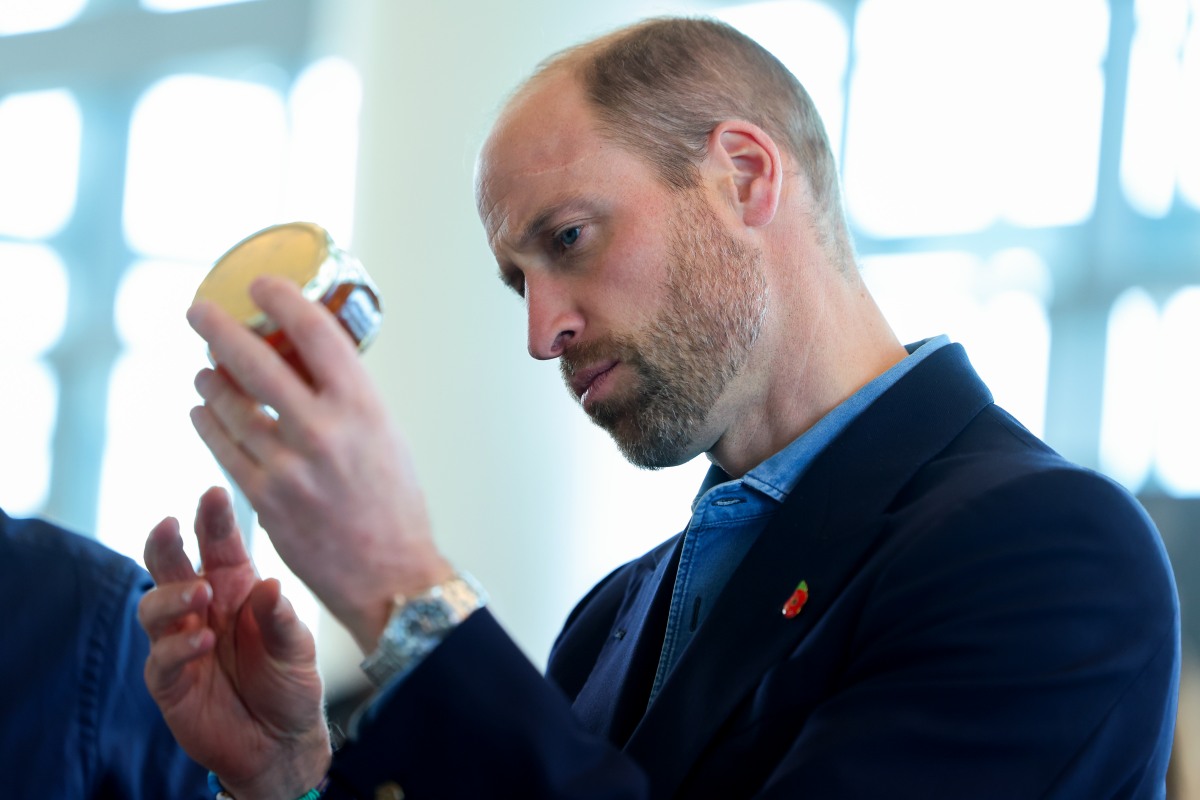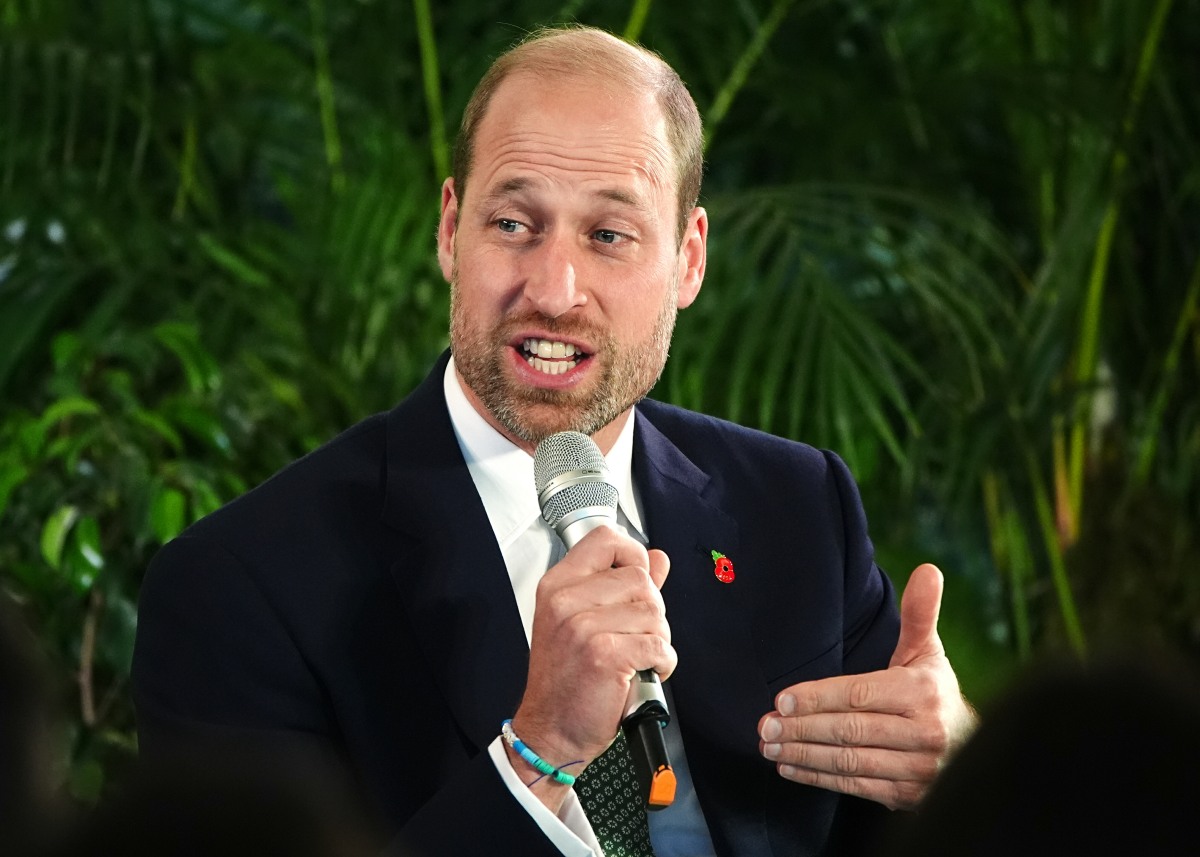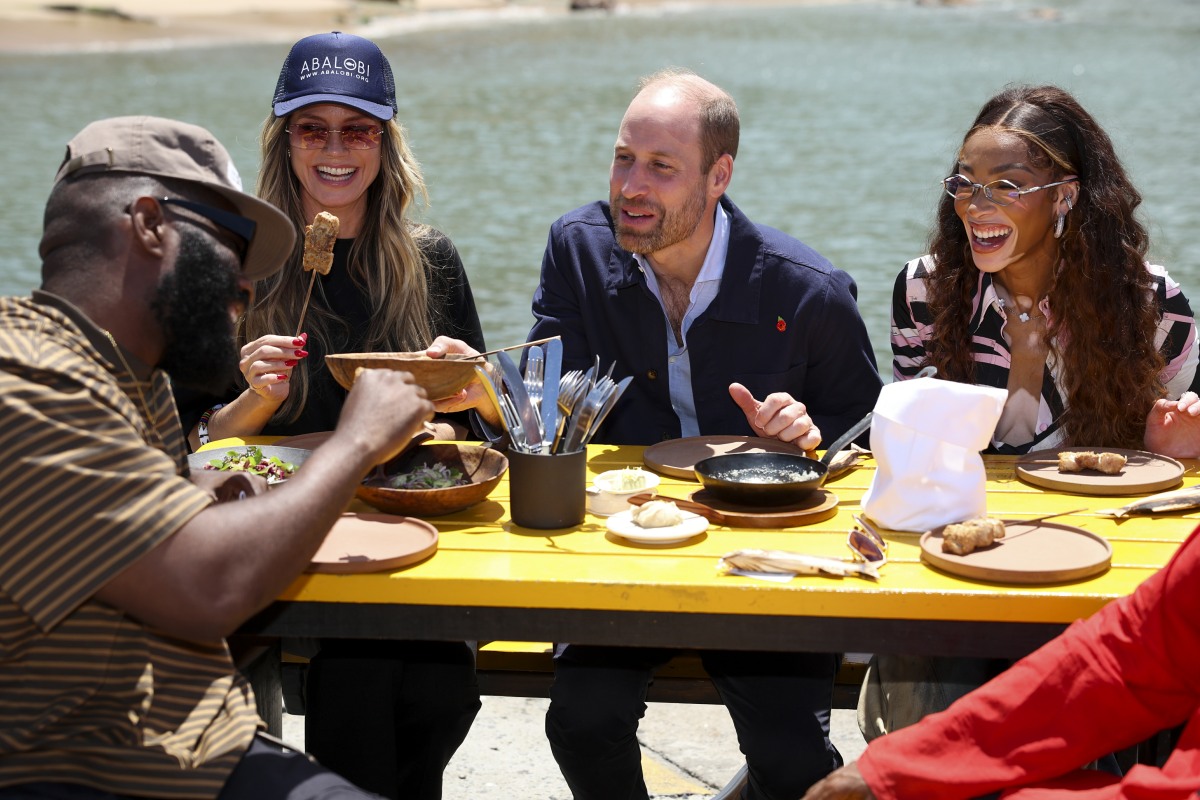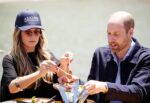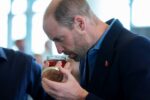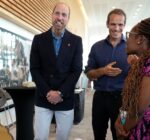Prince William just bungles around, offending people regularly. Even with his current busywork scheme, Earthshot, he manages to constantly get it wrong. Earthshot is truly an exercise in ego – it was only in the third year of the ten-year prize scheme when William invited the actual nominees and winners to the prize ceremony. He uses Earthshot to center himself at every turn, and the winners don’t even get the full $1 million prize all in one go – it’s parceled out over five years, because nothing fuels long-term investment in green tech like a paltry sum doled out in a bizarre prize scheme with the express purpose of embiggening a slumlord. Well, William is getting criticized this week for insisting that Earthshot’s Rio ceremony should be completely vegan. He offended a Brazilian chef who uses a local fish, pirarucu, in many of his dishes. Saulo Jennings is the chef, and he’s also U.N. gastronomy ambassador and advocate for sustainability. Jennings is loudly offended by what he was asked to do.
When Saulo Jennings heard he would be cooking for an heir to the British throne, the Brazilian chef knew he wanted to showcase the star ingredient of the Amazon: a huge, fleshy river fish called pirarucu. That heir, Prince William, was hosting an environmental awards ceremony by the Earthshot Prize for 700 guests in Rio de Janeiro in early November, his first visit to Brazil. Creating the canapés seemed like the perfect job for Mr. Jennings, an acclaimed chef from the Amazon known for using sustainable ingredients from the rainforest. But there was a catch: The menu had to be 100 percent vegan, Mr. Jennings said he was informed by the Earthshot organization.
At first, convinced he had misunderstood, the chef said he offered to add a vegan option to the menu. Then, he said, when he was told he could not use any of the cherished river fish species central to his dishes and to the Amazon region’s cuisine, he grew offended.
“It’s like asking Iron Maiden to play jazz,” Mr. Jennings said in an interview on Friday. “It was a lack of respect,” he added, “for local cuisine, for our culinary tradition.”
After much coaxing by the museum that will host the event, Mr. Jennings said he created a vegan menu inspired by Amazonian ingredients like cassava root, jambu leaf and Brazil nuts. But by then, negotiations over the catering of the event had broken down. And now, he is out as the caterer for the event, scheduled for Nov. 5. “I have nothing against vegans or British people,” he said. “But I don’t want to abandon my culinary mission.”
The chef’s indignation at the demand made headlines in Brazil, as many read the menu request as a snub to the rich culinary tradition of the Amazon region, where the United Nations’ annual climate conference will be held. William, along with heads of state, scientists and policymakers from around the world, will attend. Mr. Jennings was perplexed, too. He had cooked with no problem for the coronation ceremony of King Charles III, William’s father, at the British Embassy in Brazil. “I made fish and chips,” he said, “but with pirarucu.”
A spokesman for William declined to comment on the situation. But a person close to the climate event, who asked to remain anonymous in order to discuss the sensitive issue publicly, said that the prince had not been involved with the menu. The person said that the event for the Earthshot Prize, which awards millions of dollars to recipients for their contribution toward environmentalism, had asked for vegetarian, rather than vegan, food because it always serves that type of menu as part of its commitment to sustainability. In the end, Mr. Jennings, the person said, was ultimately not selected to cater the event because of budgetary constraints, not because of any resistance to creating a fish-free menu.
Mr. Jennings built his career arguing that true sustainability is anchored in the traditional culinary techniques that have been used for generations by Indigenous people in his home region. “We eat whatever the forests give us, whatever the rivers give us,” said Mr. Jennings, who is a U.N. gastronomy ambassador. “Some days, we eat fish. Other days, we eat nuts and açai,” he added. “This is also sustainable.”
In a few weeks, Mr. Jennings will have another opportunity to show off his region’s culinary traditions. He has been hired to cook for the Norwegian and Chinese delegations at the climate conference. And, at the request of the Brazilian president, Luiz Inácio Lula da Silva, he will cater a dinner reception for heads of state, he said. What will be on the menu? “With all due respect,” he said, “there will be fish.”
The thing about pirarucu is that Brazilians are incredibly proud of that particular species of fish, and Brazilians have spent years successfully bringing back the pirarucu population after decades of overfishing. The story of the pirarucu is the story of local leadership, national pride in their local delicacies, and community-led conservation. The story of the pirarucu has become a renowned example of how green activism can go hand-in-hand with capitalism. William and his people just thought they would stagger into Rio half-assed, with no one having read any briefing memo. While I doubt William made this particular call, he surrounds himself with lead-footed dolts who behave like their boss, saying and doing insensitive and offensive sh-t every other week. As soon as a UN culinary ambassador protested their menu choices, they should have said, okay, tell us what’s wrong, what do we have to change to make this work. Instead, they probably looked down their noses at the “locals” and rolled their eyes at a Brazilian chef who truly wanted to show off the bounty of Brazil.
Photos courtesy of Cover Images.
